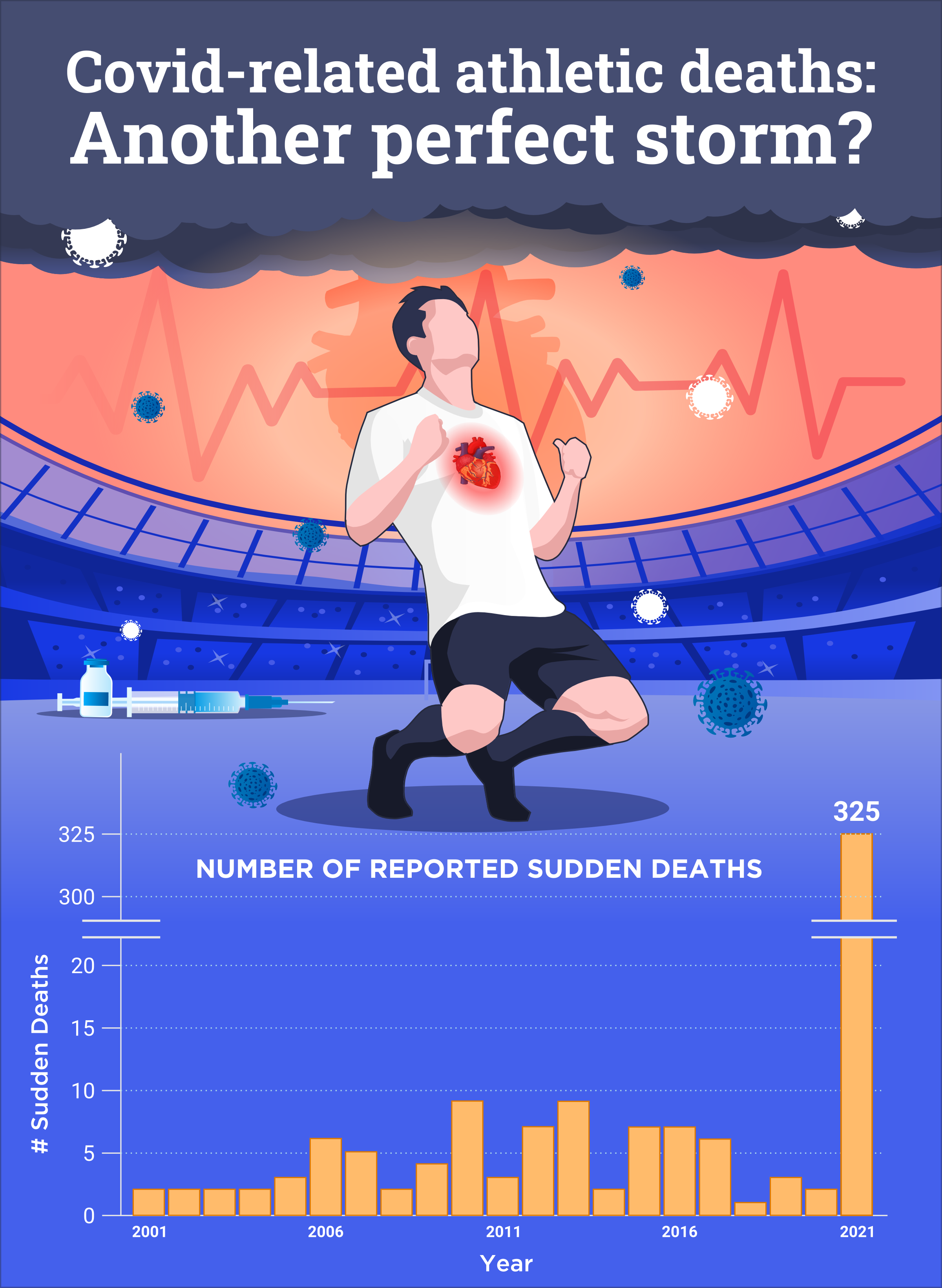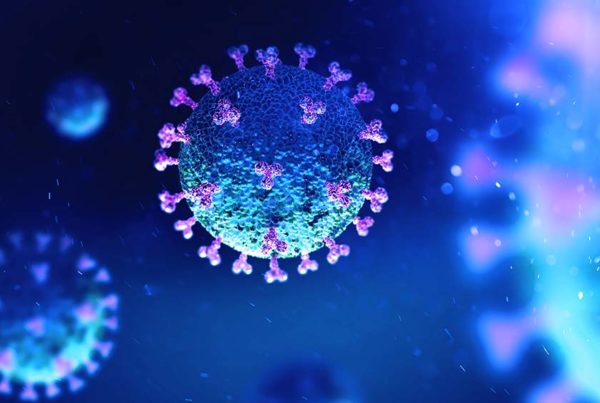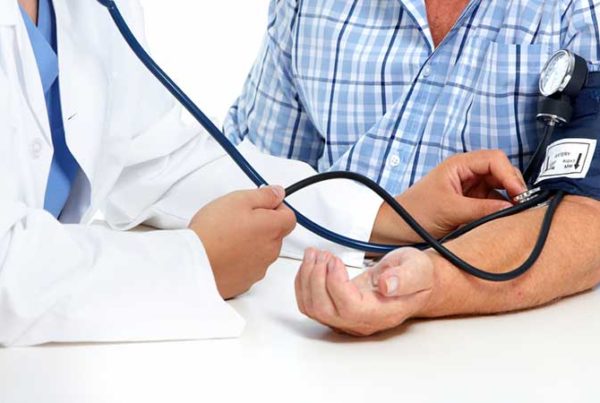
Scientists have discovered an alarming increase in the incidence of sudden cardiac deaths in athletes following Covid-19 infection and/or vaccination.
In a new scientific paper, “Covid-related athletic deaths: Another perfect storm?” published in the journal Frontiers in Sports and Active Living, researchers Philip Maffetone and Paul Laursen highlight the disturbing trend of sudden cardiac death in the wake of the Covid pandemic. While SCD in athletes is relatively rare, even a single case is too many, especially considering most are preventable.
The researchers highlight the common cardiac risks associated with both Covid-19 infection and the side effects of mRNA vaccinations (Pfizer-BioNTech and Moderna) — myocarditis and pericarditis. The accompanying graphic shows the reported deaths in 2021 compared to the previous 20 years.
Both myocarditis and pericarditis are acute inflammatory cardiac conditions that raise the risk of SCD. They can lead to cardiac dysfunction such as arrhythmias and heart failure. Viral myocarditis in asymptomatic athletes is a common cause, especially in those under 35 years including adolescents.
Myocarditis tends to develop rapidly in younger individuals, mostly after a second vaccination; pericarditis tends to affect middle age and older patients later, after either the first or second dose.
While all the biological mechanisms associated with SCD are not yet clear, the same adverse events following smallpox vaccine have been long known.
Pharmacovigilance reports, health system surveillance and case studies, and many other published research papers have suggested associations between covid vaccination and myocarditis/pericarditis in the general population. This new paper takes a wider view to include lifestyle influences while demonstrating the stark increase in 2021 SCD compared to previous years.
The U.S. Centers for Disease Control and Prevention is tracking this problem. In weighing the risk of myocarditis against the benefit of preventing severe Covid-19, the U.K., Norway, Hong Kong, and Taiwan, have suspended second-dose covid vaccinations for adolescents.
It’s been long known that physical activity can increase the risk of death in those with myocarditis. In addition, high-intensity exercise, which releases stress hormones called catecholamines, and is a common risk factor for overtraining, can suppress the immune system and risk infection, and promote inflammation. These problems can last several days, even after a single exercise bout. By comparison, a similar type of cardiac injury is observed in the hearts of some patients recently given mRNA vaccines (which can increase heart inflammation) and in post-Covid-19 infections. Health practitioners, parents, and coaches should recognize the potential added risk of mRNA Covid vaccination in athletes and take the necessary precautions.
Many athletes with SCD had no apparent signs or symptoms and first presented with sudden death. However, about 30 percent reportedly had chest pain, shortness of breath, performance decline, or palpitations leading up to the event. Better healthcare and education can help prevent such events.
While the authors discuss the increased prevalence of covid-related SCD following infection and/or vaccination due to heart injury, they emphasize it’s a primary public health concern and strongly recommend the implementation of prevention through healthier lifestyles, especially diet. A non-junk food, lower carbohydrate diet can influence health more than exercise itself; and is known to reduce risks of cardiovascular disease and infection and improve immunity.
The authors also emphasized that a stronger focus on both health and fitness should be a loud and clear proactive public health message.
Reference








